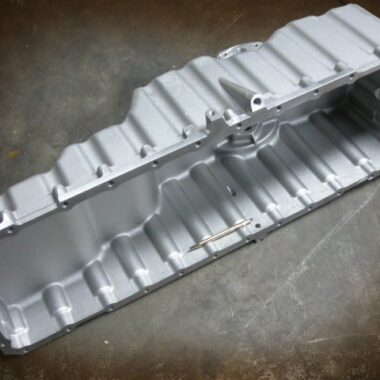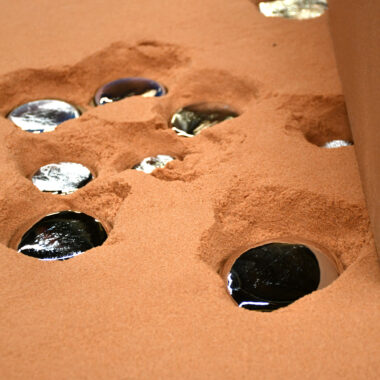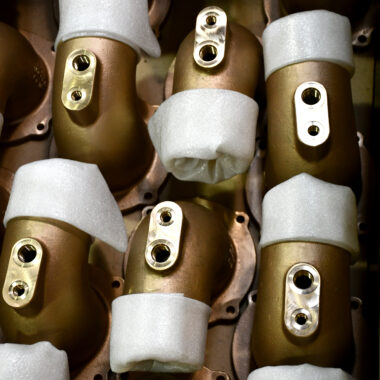Casting Aluminum Mastery: Release Your Creative Possible
Casting Aluminum Mastery: Release Your Creative Possible
Blog Article
The Clear-cut Manual on Light Weight Aluminum Spreading Services
As sectors proceed to demand precision and quality, recognizing the subtleties of light weight aluminum spreading processes becomes vital. As we browse with this conclusive manual, discovering industry patterns and innovations that shape the landscape of aluminum spreading services, we are advised of the endless possibilities that await those prepared to submerse themselves in this intricate craft.

Understanding Aluminum Spreading Processes
Discovering the ins and outs of aluminum casting processes discloses the accuracy and intricacy associated with transforming liquified metal right into detailed elements - casting aluminum. Aluminum spreading is a thorough production approach that involves the pouring of liquified light weight aluminum into a mold and mildew to produce a preferred form. This process starts with the thorough prep work of the mold, which should be crafted with precision to ensure the last product's precision. As soon as the mold prepares, the light weight aluminum is heated to its melting factor and put into the mold cavity.
Throughout the cooling procedure, the light weight aluminum strengthens and takes the form of the mold and mildew. What adheres to is meticulous workmanship to eliminate any imperfections and fine-tune the component to satisfy the required requirements. This process requires an eager eye for detail and a deep understanding of metallurgy to make certain the last product's high quality and integrity.
Comprehending the nuances of light weight aluminum spreading procedures is critical for creating premium parts that fulfill industry requirements and demands. From aerospace to automotive markets, the precision of aluminum casting plays a crucial duty in producing dependable and sturdy components.
Important Devices and Equipment
What devices and equipment are essential for accomplishing accuracy and effectiveness in aluminum spreading procedures? To ensure successful aluminum spreading, numerous vital devices and equipment are needed. Crucible heaters play a crucial function in melting the light weight aluminum alloys, offering the liquified steel necessary for casting. Crucibles constructed from products like clay graphite or silicon carbide are commonly made use of as a result of their high heat resistance. In addition, a ladle is important for moving the liquified metal from the heater to the molds accurately. Air flow systems are essential to remove any fumes or gases produced during the spreading process, guaranteeing a secure workplace. Mold and mildews, made from products such as sand or steel, are required to shape the liquified metal into the desired type. Other devices like tongs, putting containers, and cooling down chambers are likewise crucial for dealing with the molten metal and ensuring correct solidification. By making use of these devices and equipment efficiently, light weight aluminum casting solutions can attain high precision and performance in their processes.
Quality Assurance in Light Weight Aluminum Casting
Making sure constant high quality standards is vital in aluminum spreading procedures to fulfill industry demands and customer assumptions. Quality assurance in light weight aluminum spreading involves a systematic approach to tracking and evaluating every phase of the spreading procedure to guarantee the end product's honesty. To achieve this, numerous approaches are used, such as aesthetic inspections, dimensional checks, non-destructive testing, and product analysis. Visual evaluations are carried out to recognize surface area issues like splits, porosity, or insufficient fills up. Dimensional checks guarantee that this post the casting meets precise specs. Non-destructive screening techniques like X-ray, ultrasonic, or color penetrant evaluations can discover internal problems without damaging the component. Product analysis with spectroscopy or chemical testing confirms the composition of the aluminum alloy used (casting aluminum). By executing rigorous quality assurance procedures, aluminum casting provider can supply components that stick to the highest requirements of integrity, top quality, and efficiency, inevitably pleasing both industry policies and consumer demands.

Taking Full Advantage Of Effectiveness and Performance
To improve operational efficiency in aluminum casting services, optimizing efficiency and performance is essential for conference manufacturing needs and preserving competitive benefit in the market. Applying lean production concepts, such as decreasing waste and enhancing procedures, can dramatically boost total efficiency. Using advanced innovation, like computer-aided layout (CAD) software application and automated systems, can enhance productivity by decreasing hands-on labor and increasing accuracy.

Collaborating carefully with distributors to make certain a constant flow of top notch materials and carrying out durable scheduling and supply administration systems are additionally vital strategies for optimizing efficiency in aluminum spreading services. By concentrating on these areas, companies can accomplish higher degrees of performance, meet client needs efficiently, and stay in advance in an open market.
Sector Patterns and Technologies
In feedback to the progressing landscape of light weight aluminum casting services, remaining abreast of market trends and innovations is imperative for preserving an one-upmanship and meeting the vibrant demands of the market. One significant trend in the aluminum spreading industry is the raising emphasis on sustainability and environmental duty. Companies are adopting greener practices, such as making use of recycled light weight aluminum and executing energy-efficient processes, to align with consumer expectations and regulative requirements.
Additionally, improvements in innovation are reinventing aluminum casting procedures. The combination of automation, robotics, and expert system is simplifying production, boosting precision, and lowering lead times. 3D printing is also making waves in the industry by allowing complex geometries to be generated with higher performance and cost-effectiveness.
In addition, there is an expanding emphasis on modification and item personalization. With consumers looking for one-of-a-kind and tailored products, aluminum spreading services are adapting to supply even more adaptable production services. By embracing these industry trends and advancements, business can place themselves for success in a swiftly evolving market.
Verdict
Finally, the handbook on aluminum spreading solutions gives a detailed overview of the processes, tools, top quality control steps, efficiency approaches, and industry patterns in about his the field. By comprehending these vital aspects, companies can improve their spreading processes, make certain premium products, and stay competitive in the marketplace. This clear-cut manual acts as a useful source for those included in aluminum spreading solutions.
As markets continue to require accuracy and top quality, recognizing the subtleties of aluminum spreading processes becomes paramount (casting aluminum). Light weight aluminum Click Here casting is a meticulous manufacturing approach that includes the putting of molten light weight aluminum right into a mold and mildew to produce a desired form.Making sure consistent top quality requirements is extremely important in aluminum spreading procedures to meet market demands and consumer expectations. Quality control in aluminum casting involves a systematic strategy to monitoring and examining every stage of the spreading process to guarantee the final product's stability.In verdict, the manual on aluminum spreading services gives an extensive review of the procedures, devices, quality control measures, efficiency methods, and sector fads in the field
Report this page